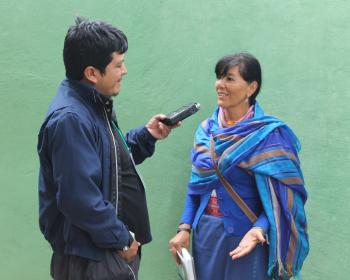Ryann Dear is the newest volunteer on our Community Radio Project team in Guatemala. She is a recent graduate from Boston University with a Bachelor’s Degree in Anthropology and Archaeology. She worked as an intern for the community radio project with the Cultural Survival team in Cambridge for five months this past spring. She was a great fit with Cultural Survival from the beginning, and is now getting the opportunity to see another side of our organization, working alongside Indigenous Community Radio activists and volunteers in Guatemala.


